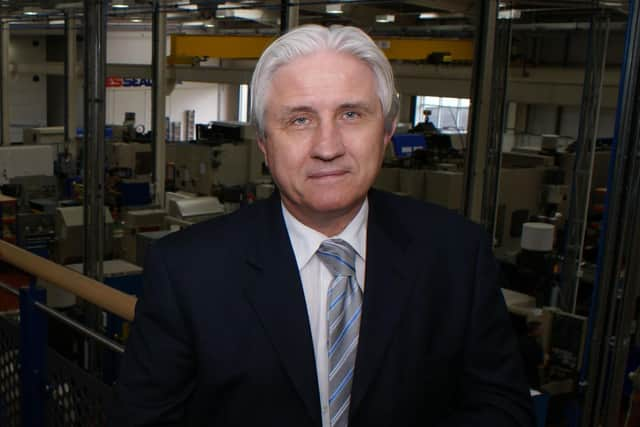I fear for the world that my grandchildren will inherit - Chris Rea
Industry leaders in Yorkshire face a stark choice – clean up their act or see their businesses go bust. That might sound overly dramatic but I assure you it is true.
Sooner or later, the financial cost of their greenhouse gas emissions will be greater than their profitability. And that’s assuming there are any consumers left who will support companies that contribute to global warming in these climate-conscious times.
Advertisement
Hide AdAdvertisement
Hide AdReaders need not look very far to grasp the urgency of this agenda. The news is filled with apocalyptic images of extreme weather events as storms, floods, droughts, wildfires and heatwaves hit high and low-income countries alike.


I fear for the world that my grandchildren will inherit and am speaking out to encourage others to act before it is too late.
Polluters must get their houses in order if they want to have a future. The Government’s latest carbon budget enshrined in law a 78 per cent reduction in carbon emissions by 2035 to “build back greener” through the take-up of low-carbon solutions, expansion of low-carbon energy supplies and reduction of carbon-intensive activities.
This transition to a net-zero economy represents the standout economic opportunity for Yorkshire and brings enormous potential to create new jobs and that’s why we are backing The Yorkshire Post Climate Change Summit 2021 – to help put environmentally friendly business behaviour at centre stage as the UK recovers from the pandemic.
So what should industry leaders do?
Advertisement
Hide AdAdvertisement
Hide AdThey can start by cutting greenhouse gases from sources under their control, known as scope 1, by embracing readily available environment technologies. Many businesses in Yorkshire are leading the way by equipping their factories with solar panels, ground source heat pumps and voltage optimisation units.
Betterworld.Solutions exists to demonstrate how these climate-friendly investments are good for business by sharing examples of best practice in the real world. Companies can also cut emissions that come from the energy they purchase, known as scope 2, by switching to low-carbon suppliers. And they can purchase carbon credits to offset emissions.
The big challenge for companies will be in cutting greenhouse gases in their supply chains, known as scope 3 and likely to be many times bigger than their scope 1 and 2 emissions combined.
The World Economic Forum calculates that eight supply chains account for more than 50 per cent of all global emissions: automotive, construction, electronics, fashion, fast-moving consumer goods, food, freight and professional services.
Advertisement
Hide AdAdvertisement
Hide AdThe WEF warns that decarbonising these vast interlinked systems will be difficult due to a lack of data and the fragmented landscape made up of millions of different entities. But it believes it can be done by creating transparency, redesigning products for sustainability, engaging with suppliers, sharing best practice and empowering organisations, all while hardly increasing end-consumer costs. This really is a race against time.
Industry has a vital role to play in protecting the planet for future generations but public sector organisations also wield enormous influence in their investment decisions and the impact they have on the environment.
As pressure grows on business to act responsibly, public servants at a national, regional and local level can be more analytical in how they spend money on sustainability projects, including those labelled as ‘green’.
At AESSEAL, we will reach net zero for scope 1 and 2 emissions for our global group next year and because we make environmental products, our scope 3 emissions are effectively cancelled out – although we continue to do what we can to influence our supply chain, promote Betterworld.Solutions and invest in environmental technologies at our factories across the world. I have challenged our suppliers to reduce their greenhouse gases because I see their emissions as our emissions.
As customers, we can make our voices heard.
Advertisement
Hide AdAdvertisement
Hide AdFor many companies, the cost of not cutting greenhouse gases will ultimately push them out of business. The practice of offsetting is likely to become prohibitively expensive. At AESSEAL, we were able to buy carbon credits at a price of £7 per tonne.
A recent investment by a global shipping giant suggested the actual price has risen to as much as £100 a tonne.
This suggests the cost of unchecked emissions will sooner or later be greater than profitability. This is why companies must clean up their act. It is becoming a matter of business survival.
